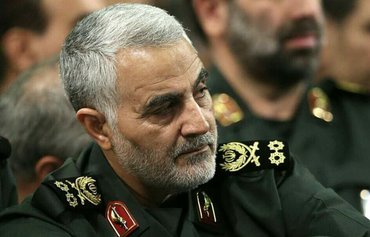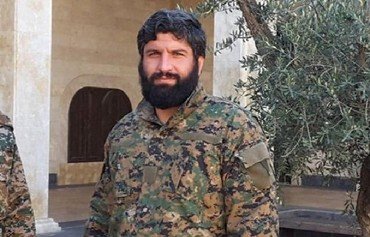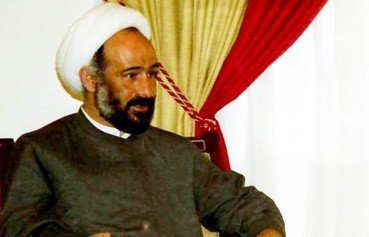In the months since top Iranian general Qassem Soleimani was killed, Iraqi politicians and analysts tell Diyaruna, they have observed a number of political and security changes that they view as positive for Iraq.
It has been just over three months since the former commander of the Islamic Revolutionary Guard Corps' Quds Force was killed in a January 3rd US airstrike in Baghdad.
Since Soleimani's elimination, analysts said, Iraq now has greater opportunities to assert its independence and distance itself from the Iranian interference that was undermining its security and draining its resources.
"Iraq now has a great opportunity to dismantle the armed networks and mafias established by Soleimani over the past years," Dijla Strategic Planning Centre researcher Hussein al-Safi told Diyaruna.
Over the years, these Iran-backed militias have "drained billions of dollars of Iraq's wealth to serve Iranian projects in the region", he said, noting that Iraq will be better able to assert its sovereignty as these militias weaken.
Soleimani's elimination came at a time when the Iraqi people were taking to the street to demonstrate against government corruption and the outsized influence and interference of Iran in their country, he noted.
"This turned the Iraqi street into a key player on the political scene that is putting pressure on the political forces," he said. "In view of that, it can be said that Iraq is undergoing a number of positive changes."
An opportunity for change
Now that Soleimani is gone, there is an opportunity for change, al-Safi said.
Soleimani was one of the main forces behind the drain of Iraqi wealth, he said, and he oversaw the formation of dozens of militias, financed with Iraqi funds.
"His absence today is a great opportunity to put forward a more pluralistic political scene, because he undermined every civil or nationalistic political movement that he saw as posing a danger," al-Safi said.
It can be said that this era has ended, he added, and that Iran is incapable of bringing in a replacement to do what Soleimani did.
In the political arena, there are new voices in parliament that are beginning to speak independently of the heads of blocs known for their ties to Iran, he noted.
"Iraq is without question better off now," Mustaqbal party president and former Iraqi MP Entifadh Qanbar told Diyaruna.
"US forces gave Iraqis a tremendous gift by eliminating this terrorist [Soleimani], who until the last hour of his life continued to destroy the democratic process in Iraq and drain its wealth," he said.
Through his support of Lebanese Hizbullah and militias in Iraq and Syria, Soleimani "posed a threat to civil peace in Iraq", Qanbar said, "so eliminating him was akin to opening a new window to a better tomorrow for Iraq".
No replacement for Soleimani
"Three months after Soleimani's death, the Iranians are still unable to find a replacement for him," National Salvation Front leader and former Ninawa governor Atheel al-Nujaifi told Diyaruna.
"What exacerbates the predicament for Iran is that the financial support it was providing to the militias loyal to it has declined significantly, which has led to clear disarray among the members of those armed factions," he said.
"The months-long demonstrations in Iraq reflected much of what is in the hearts of Iraqis, most significantly that they reject Iranian tutelage and interference," he said, adding that Soleimani understood this before his death.
Iraqi political affairs researcher Ahmad al-Hamdani told Diyaruna that Iraq has witnessed "remarkable changes since Soleimani's demise".
"At the political level, despite the fact that there is a crisis over the government's formation, it is notable that Iran has for several months been unable to impose its will or its opinion," he said.
"There are MPs and blocs whose voices are growing louder and more nationalistic," al-Hamdani said.
"Even the decision to close the border with Iran, as part of the measures taken to prevent the spread of the coronavirus, was one of the increasingly more independent decisions being made by Iraqi authorities," he noted.
Iraqi nationalism on display
Border crossings and trade were key issues to Soleimani, and his insistence that Iraq keep importing goods from Iran, ensuring Iran's access to hard currency, impeded the growth of Iraqi industry and agriculture, al-Hamdani said.
Regarding the general security situation in Iraq, the militias Soleimani founded have become "more fragmented" and are competing among themselves for influence and interests, he said.
Without Soleimani, these militias are "weakened and in disarray", he said.
The mood on the Iraqi street is that people no longer want to see any force other than the army and police forces enforcing security, he said.
The Iraqi street views these armed groups as having no loyalty to Iraq and as "nothing more than arms or even tails that implement and serve Iranian interests", he added.
"So the answer to the question of whether Iraq is better off after Soleimani's elimination is a definite yes," al-Hamdani said.
"His elimination has created intense fear among the militia leaders who worked under his command that they will meet a similar fate as their leader," he said.

![A man looks at his phone while riding a bicycle past a poster showing top Iranian general Qassem Soleimani and Iraqi paramilitary commander Abu Mahdi al-Muhandis embracing each other, in Baghdad's Karrada district on February 10th. [Ahmad al-Rubaye/AFP]](/cnmi_di/images/2020/04/15/23518-Soleimani-biker-Baghdad-600_384.jpg)






